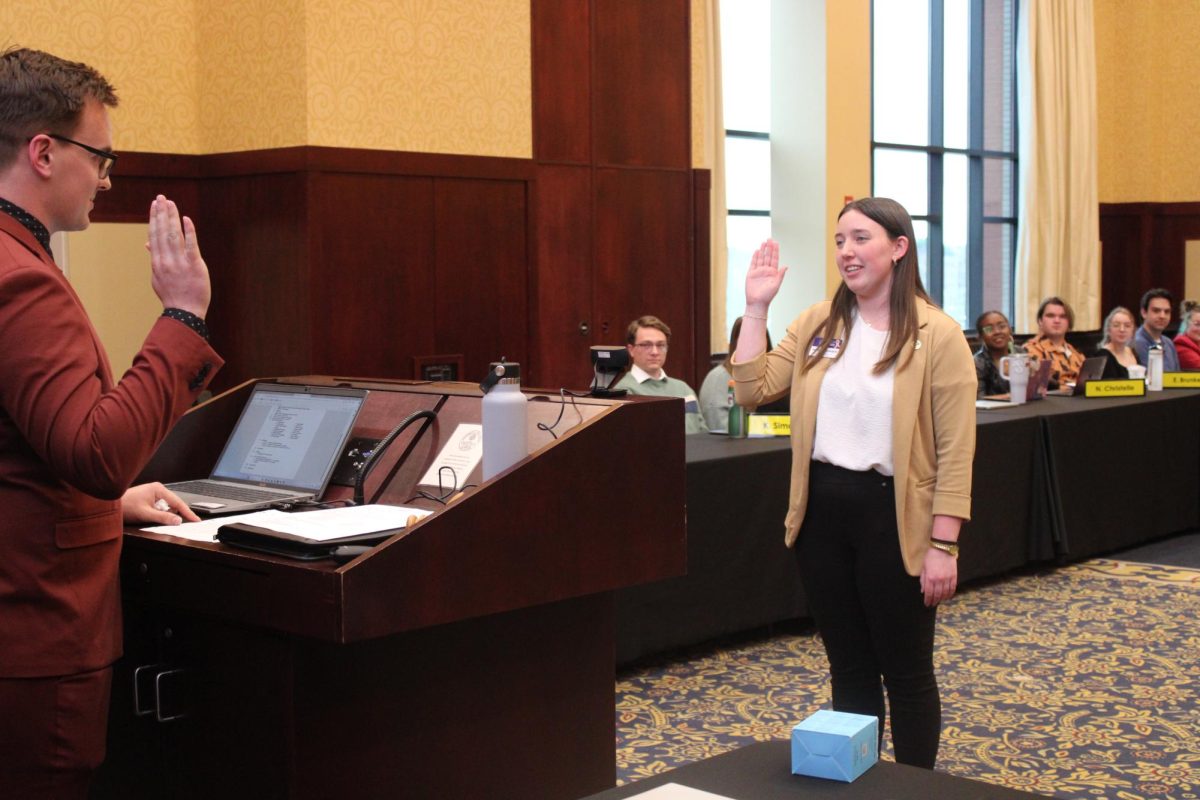Students hoping to improve their resumes got help Tuesday and Wednesday night as part of the Chancellors Hall Upper Class Experience.
The program features workshops throughout the year designed for Chancellors residents, but they are open to all interested students. Various aspects of life after college will be covered, such as interviewing for jobs, figuring out insurance plans and applying to graduate schools, said Peter Rejto, Chancellors Hall director.
| “It’s cool when there’s programs like this on campus that aren’t just for freshmen.” –Erik Sorenson Senior |
“I’d like to see students better equipped to face the challenges that life after college presents,” he said. “The more information they have, the better they can meet those challenges.”
Senior Erik Sorenson, a Chancellors Hall resident, said he believes the program is a good idea because many students do not learn these types of skills in their classes.
“It’s cool when there’s programs like this on campus that aren’t just for freshmen,” Sorenson said. “I’m planning on going to as many (workshops) as possible.”
Many students don’t think about things like insurance or how to finance a new car until after leaving college, Sorenson said.
“There’s a reason why we’re dumb and go into debt,” he said. “We just don’t think about everything.”
Rejto said teaching students life skills that they will need after graduation is the reason the program is being offered. It also corresponds to programs in other residence halls that cater to underclassmen needs.
Programs that focus on freshmen have worked well on campus, he said, so attention has been turned to graduating seniors.
Chancellors is an obvious choice for starting an upperclassmen program on campus, Rejto said, because most Chancellors Hall residents are upperclassmen and about 200 Chancellors residents graduate each year.
The program originated from John Gardner, writer of “The Upper Class Experience,” in his visit to campus last year. He challenged the university to help students make the transition from college to life after college, Rejto said.
Senior Brandi Sermons, Chancellors Hall Council vice president, said she attended a few trial workshops last year and learned a lot from them.
“I think that (the program) is very well worth the time to go,” Sermons said. “I think it will also be very fun.”
The Chancellors Hall Upper Class Experience program isn’t meant to replace services on campus that give students the same information, Rejto said.
Its purpose is to make the information even more accessible to students, he said.
“I think that the information is out there,” Sermons said. “It’s just a matter of (it) being brought to people’s attention. Most students just don’t look for it.”
A different topic will be presented to residents once a week during the workshops, Rejto said.
Also, any non-Chancellors Hall residents who wish to attend workshops or get on the e-mail list to learn which workshops are offered can contact him, Rejto said.
The next workshops will be held in the Chancellors Hall Seminar Room on Tuesday and Wednesday Oct. 14, 15, 21 and 22, and will cover aspects of interviewing, Rejto said.
Workshops in future months will feature volunteer presenters, such as alumni and local businesspeople, as well as presenters from the Employee Benefits and the Alumni offices on campus, Rejto said.
“Everyone has been very supportive and helpful,” he said. “Everyone has shown willingness to help in any way they can. This is one of those programs that it is easy for anyone to get behind because everyone immediately sees the benefits that students can gain from it.”






